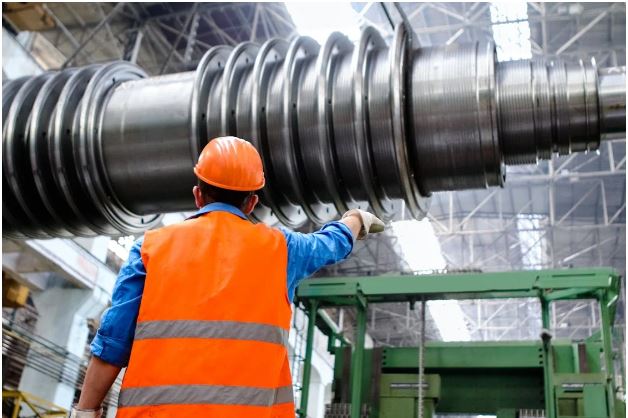
Businesses are always on the lookout for intelligent investments that offer tangible benefits. One such investment that often flies under the radar but packs a powerful punch is the hydraulic power unit (HPU). These units might seem like just another piece of machinery, but they are vital to boosting productivity, ensuring reliability, and promoting sustainability in various industries.
Need more convincing? Let’s explore why opting for a hydraulic power unit isn’t just a good idea—it’s a smart move for any forward-thinking business.
Versatility and Applications
Hydraulic power units (HPUs) are the go-to solution for big construction projects, from skyscrapers to bridges. They power cranes, lifts, and excavation equipment with ease and precision.
At sea, a diesel hydraulic power pack keeps ships and offshore platforms running smoothly, handling everything from heavy lifting to precise manoeuvring. Whether hauling massive loads or delicately positioning ship components, hydraulic power units have the strength and finesse to do the job right.
But their usefulness doesn’t stop there. In mining, agriculture, forestry, manufacturing, aviation, and automotive industries, HPUs play essential roles, powering machinery and equipment with reliability and efficiency.
When a job requires serious hydraulic muscle, hydraulic power units are the ones to call. They’re versatile, powerful, and reliable, making them essential tools in various industries and applications.
Efficiency and Performance
Unlike their mechanical or electrical counterparts, HPUs boast high power density, which can generate significant force without taking up much space. This compact design makes them ideal for installations where space is at a premium, allowing for efficient use of available resources without sacrificing power.
But it’s not just about brute force—hydraulic systems provide smooth and precise control over speed and force. Whether lifting heavy loads or delicately manoeuvring equipment, hydraulic power units offer unparalleled precision, ensuring tasks are completed with accuracy and finesse.
This precise control translates to consistent performance even under varying loads, a feat mechanical or electrical systems often struggle to achieve. Whether the workload is light or heavy, hydraulic systems maintain efficiency and reliability, ensuring operations run smoothly without interruptions.
And let’s not forget about downtime—every minute of equipment downtime can translate to lost productivity and revenue for businesses. Hydraulic power units minimise downtime with their reliability in operation, keeping operations running smoothly and efficiently.
Reliability and Durability
From the factory floor to construction sites, HPUs are built to thrive in harsh conditions and heavy-duty use. Their robust construction means they can handle the most challenging tasks without breaking a sweat, ensuring continuous operation even in the most challenging environments.
Routine maintenance and servicing are essential for any equipment, and HPUs are no exception. Regular upkeep helps ensure peak performance and prolongs the lifespan of hydraulic systems. But even without constant attention, hydraulic power units are known for their impressive durability.
Even under the most strenuous operation, hydraulic systems soldier on, demonstrating resilience in the face of adversity. Their ability to withstand high pressures, extreme temperatures, and heavy loads minimises the risk of unexpected failures, keeping operations running smoothly and reducing the likelihood of costly downtime.
Environmental Considerations
Beyond their stellar performance and reliability, HPUs offer many environmental benefits that make them a responsible choice for businesses seeking to reduce their environmental footprint.
Advancements in hydraulic technology have led to the development of modern HPUs that are more energy-efficient than ever before. These state-of-the-art systems are designed to maximise power output while minimising energy consumption, ensuring optimal performance without unnecessary waste.
Furthermore, hydraulic systems produce fewer emissions than traditional combustion engines, making them a cleaner and greener option for industrial settings. Unlike internal combustion engines that rely on fossil fuels, hydraulic power units utilise hydraulic fluid to transmit power, reducing emissions of harmful pollutants such as carbon dioxide and nitrogen oxides.
Cost-effectiveness and Return on Investment (ROI)
At first glance, the initial investment in a hydraulic power unit (HPU) may seem daunting. Still, when considering the long-term benefits, it becomes clear that HPUs offer a compelling return on investment (ROI).
One primary way that hydraulic power units deliver ROI is through enhanced productivity. By providing reliable and efficient power, HPUs enable businesses to complete tasks more quickly and effectively.
Furthermore, HPUs contribute to cost savings by reducing maintenance expenses. Compared to other power sources, hydraulic systems have fewer moving parts and undergo less wear and tear, resulting in reduced maintenance requirements and lower repair costs over time.
Another factor contributing to the cost-effectiveness of hydraulic power units is their extended lifespan. Thanks to their robust construction and reliable performance, HPUs have a longer service life than alternative power sources.
Calculating the total cost of ownership over the lifespan of a hydraulic system makes the savings even more apparent. In the long run, the financial benefits far outweigh the initial investment, making HPUs a financially prudent choice for businesses looking to maximise their ROI.
Conclusion
Don’t settle for outdated power sources that drain your resources and limit your potential. Embrace the future of industrial innovation with hydraulic power units and position your business for success in today’s dynamic marketplace.
